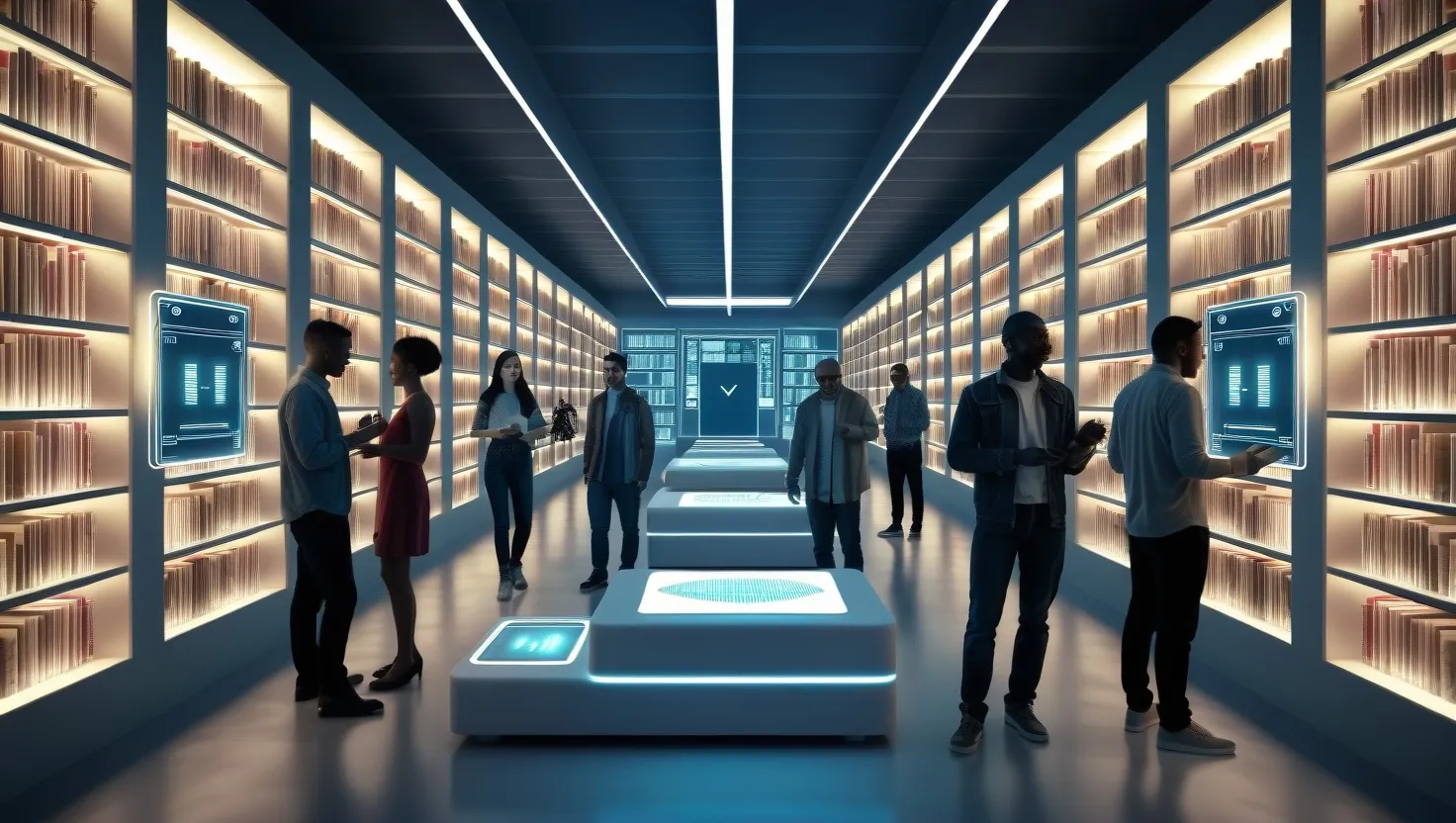In the heart of a bustling city, there is a library that has become more than just a repository of books; it has transformed into a hub of innovation and community engagement. Zoe, a visionary librarian, has been at the forefront of this transformation, spearheading the creation of a book-lending blockchain system. This journey has not only revitalized the library but has also introduced Zoe and her community to the fascinating world of decentralized finance, smart contracts, and financial inclusion.
As I walk into the library, I am greeted by the familiar musty smell of old books and the hum of quiet conversation. But something is different. The air is electric with excitement, and the shelves seem to hold more than just stories – they hold the promise of a new era.
Zoe’s story begins with a simple yet profound question: “How can we make our library more relevant and accessible to our community?” The answer, it turned out, lay in blockchain technology. This decentralized, immutable ledger system, known for its security and transparency, seemed like the perfect solution for managing book lending.
“Blockchain is to money what the internet is to information,” as Andreas Antonopoulos once said. For Zoe, this meant creating a system where books could be lent and returned without the need for a central authority, ensuring that every transaction was secure and transparent.
The first step was to understand the basics of blockchain. Zoe delved into the world of distributed ledgers, where data is stored across a network of computers rather than in a single location. This decentralized approach ensures that once data is recorded, it cannot be altered without the consensus of the network. It was the perfect solution for tracking lending transactions and authenticating rare materials.
As the system began to take shape, Zoe introduced smart contracts – self-executing contracts with the terms of the agreement written directly into lines of code. These contracts automated the lending process, streamlined interlibrary loans, and enforced lending policies seamlessly. It was a game-changer, reducing administrative overhead and enhancing the user experience.
But the impact went beyond just efficiency. The blockchain system opened up new avenues for financial inclusion. Libraries could now manage payments between publishers and libraries more transparently, and even facilitate community-based collections and partnerships with government organizations, museums, and universities.
“Financial inclusion is not just about access to financial services; it’s about creating opportunities for economic growth and stability,” notes a financial expert. For Zoe’s community, this meant that more people could access books and educational resources, regardless of their financial background.
As the community began to embrace the platform, Zoe noticed something remarkable. The library was no longer just a place to borrow books; it had become a hub for diverse readers to connect. People from different walks of life were coming together, sharing stories and ideas, and learning from each other.
“Libraries are not just repositories of books; they are community centers, educational hubs, and safe spaces,” Zoe reflects. The blockchain system had not only made the library more efficient but had also fostered a sense of community and inclusivity.
But what about the challenges? Implementing blockchain technology is not without its hurdles. There are concerns about intellectual property rights, copyright management, and digital preservation. How do you ensure that the rights of content creators are respected while making resources more accessible?
Zoe and her team had to navigate these delicate issues carefully. They developed robust governance frameworks to address privacy concerns and ensure compliance with copyright laws. It was a balancing act between accessibility and protection, but one that was necessary to uphold ethical standards.
As I talk to Zoe, I realize that her journey is not just about technology; it’s about people. It’s about creating a system that serves the community, that connects readers, and that preserves knowledge for future generations.
“The future belongs to those who believe in the beauty of their dreams,” Eleanor Roosevelt once said. For Zoe and her community, the future is bright, and it is built on the principles of transparency, security, and inclusivity.
So, what does the future hold for libraries like Zoe’s? Will blockchain technology become the norm? Only time will tell, but one thing is certain – the potential is immense. As libraries continue to adapt to the digital age, blockchain emerges as a powerful ally in their quest to preserve knowledge and foster innovation.
As I leave the library, I am filled with a sense of hope and excitement. The world of blockchain and decentralized finance is complex, but it is also full of possibilities. And for Zoe and her community, it has become a tool not just for lending books, but for building a better future.
“Technology is nothing. What’s important is that you have a faith in people, that they’re basically good and smart, and if you give them tools, they’ll do wonderful things with them,” Steve Jobs once said. For Zoe, this faith in people and technology has led to something truly remarkable – a library that is not just a place of books, but a place of connection, innovation, and community.






